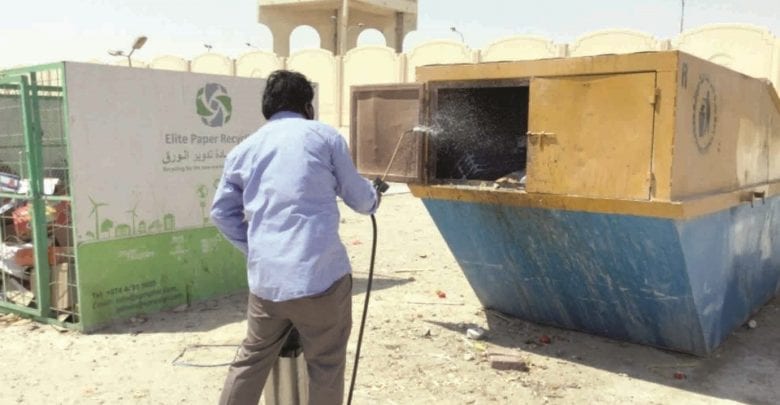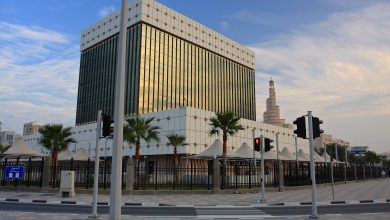
Qatar’s initiatives lead to 32% fall in waste
مبادرات قطر تؤدي إلى انخفاض 32٪ من معدل النفايات
DOHA: Qatar has made big strides in the area of efficient use of natural resources. Due to various efforts taken by the government, the total waste generated in the country has fallen significantly.
The total waste generated in the country has declined by around 32 per cent since 2011. According to the ‘Second Voluntary National Review, 2018’, the total waste declined from about 12.1 million tonnes in 2011 to about 8.2 million tonnes in 2017.
“The Government has encouraged the efficient use of natural resources, green initiatives and buildings by reducing waste production through reduction and recycling, and the development and implementation of programs and projects related to pollution and solid waste recycling (construction, building waste, and domestic waste) from about 9.6 million tonnes in 2011 to about 4.6 million tonnes in 2017,” said the report.
“The total waste also decreased from about 12.1 million tonnes in 2011 to about 8.2 million tonnes in 2017,” noted the report.
Total solid waste in Qatar amounted to 7.7 million tonnes in 2015. The construction sector is a major contributor to generating solid waste. The government gives special attention to waste management and treatment, due to its keenness to reduce waste’s effects on health, maintain a civic view of the country, and promote waste reduction practices.
Qatar has succeeded in keeping the level of domestic waste at 1.3kg per person per day. Qatar’s Second National Development Strategy (2018-2022) includes many goals that seek to ensure sustainable consumption and encourage efficient use of natural resources.
One of the goals is to preserve and develop water resources by reducing the total losses of potable water and reducing the per capita consumption of water by 15 per cent through the National Program for Conservation and Energy Efficiency (Tarsheed) by 2020. It also aims to reduce the depletion of groundwater and the development of the aquifer and strengthen the integrated management of water and electricity and reduce the rate of consumption of electricity per capita by eight per cent through Tarsheed.
It also targets to increase the proportion of recycled materials of construction projects in the country to 20 per cent of total materials used and keep the rate of domestic waste generation under 1.6 kg per person per day during the period 2018-2022.
The strategy aims to build a community that has environmental awareness and supports environmental sustainability.
In 2011, the Solid Waste Treatment Plant was opened in Mesaieed. The tire recycling project was launched in 2012, where the recycling rate reached more than 60 per cent.
Construction sector came at the top in terms of the amount of treated waste, with 55.7 per cent of total waste in 2015. Around 3,002 tons of domestic waste was generated on a daily basis in 2015, which meant that the average was 1.23 kg per capita on a daily basis.
By Sachin Kumar I The Peninsula
أنجزت بلدية الشيحانية -ممثلة في قسم النظافة التابع لإدارة شؤون الخدمات- خدمات متنوعة في مجال النظافة العامة بالمرافق العامة في الحدود التابعة للبلدية، خلال يوليو الماضي.
وقام القسم بأعمال خدمية، منها تنفيذ 120 طلب مكافحة للحشرات والقوارض، و64 طلب تسليك منهولات، و1633 نقلة لسحب مياه الصرف الصحي، في الحدود التابعة للبلدية.;



